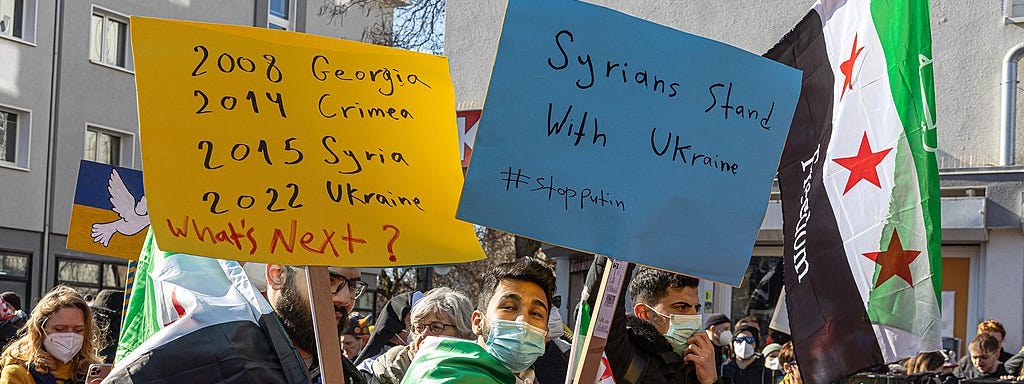WEEKLY BRIEFING
Key headlines curated to make sense of the news.

All eyes are on Russia’s invasion of Ukraine.
It’s the largest conventional military attack and Europe’s most perilous moment since World War II.
There’s rolling coverage of developments from a number of sources—here, we look at the key humanitarian and health concerns that have arisen so far.
Europe’s new refugee crisis
In less than a week, more than half a million people have fled their homes—adding to more than 850,000 displaced by an ongoing conflict in the east of the country. As many as seven million people could be displaced by this war, according to the EU’s commissioner for crisis management. The UN has said three million people are in need of protection, food, shelter, health care, water and sanitation.
The response to this tragedy also betrays a double standard from officials in neighbouring countries and at the level of EU policy. There are reports of racial discrimination on escape routes, with black people refused access to transport. For years, EU’s migration policy has compelled many people fleeing conflict in the Middle East to seek dangerous routes into Europe—but rules on who is entitled to enter and reside on the continent are now being relaxed to accommodate the influx from Ukraine. The double standard isn’t going unnoticed in media commentary (though similar racial undertones pop up in some coverage as well).
Sources: WaPo + Guardian + Sensemaker + Euronews + UN News + Independent + TNH + NYT + Reuters + WaPo + Quartz
—
In Quotes
“I do want to ... echo discomfort … with polite society’s sudden discovery of the phenomenon of forced migration now that those it affects are near neighbors that cannot be otherised. Echo discomfort with European governments’ sudden rediscovery of their legal and moral obligation to offer protection to refugees. I also want to remind us all to not lose track of atrocious conflicts blazing on in Ethiopia, Yemen, Syria, or Myanmar—to name just a few. At a moral level, our solidarity is null if it is anything short of universal.”—Joel Hernàndez in Mixed Migration-hebdo
—
Nuclear jitters
Russian forces captured the area around the defunct Chernobyl nuclear power plant early in the course of the invasion. There was initial nervousness, fuelled by a 20-fold spike in radiation levels at the plant. This turned out to be temporary, down to dust stirred up by Russian vehicles near the plant. And experts said the risk of nuclear material being released from the plant is minimal, at least for now. That might change if there’s a deliberate attack. Ukraine’s four active nuclear power plants are a bigger worry for analysts.
Sources: New Scientist + Reuters + WaPo + + WaPo + BBC + NYT
—
Plus:
The WHO has said the country’s supplies of medical oxygen are running low—this is crucial for patients with Covid-19 and many other medical conditions. (WHO)
US officials have warned that the Russian invasion risks the release of dangerous pathogens held in a network of US-linked laboratories with expertise in biological weapons. (Bulletin of the Atomic Scientists)
Let’s look at some other news and key developments from the past week.
Keep reading with a 7-day free trial
Subscribe to WorldWise to keep reading this post and get 7 days of free access to the full post archives.



